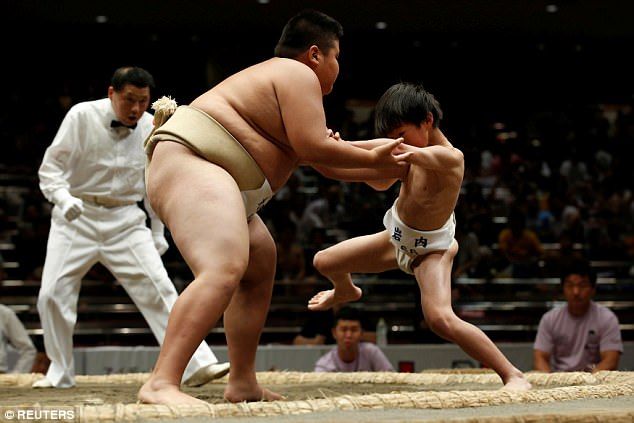In 1994, when I was a university student in the USA, I was invited by the Malaysian Judo Federation to return to Malaysia for the Nationals. To my surprise, I found out that not only was I registered to compete in the -60kg division, I was registered for the Open division too. Today, the Open division no longer exists but back then, it was a normal part of a championship to have a division where weight classes don't exist.
Back then, the weight classes were -60kg, -65kg, -71kg, -78kg, -86kg, -95kg, +95kg. Usually for Open Weight, only players -78kg and above would compete. It was pretty unheard of for even -71kg players to take part in this division, let alone -60kg!
I won the -60kg division and decided to give my best for the Open. I defeated the defending Open weight champion who was also the -86kg champion and I even defeated the +100kg champion on the way to the final. There, I lost by hantei (referee's decision) to the -78kg champion. There was no Golden Score back then. When scores are even (we had a yuko each), the referees would decide the winner.
I ended up with a silver, which was still a pretty good showing considering I was the lightest player in the category. But I also injured my knee in the process and ended up having to go to the hospital immediately after the competition. Based on my good results, I was chosen to be the sole Malaysian judo representative for the 1994 Asian Games in Hiroshima, the month after, but my leg injury required me to withdraw from that competition.
What I learned from that experience is that when you try to defeat bigger players, you are likely to get injured. You might throw them but the price you pay could be a steep one. This is true even for randori.
Sometimes, you have big players who know how to take care of smaller players. These are usually very experienced players. But oftentimes, the less experienced bigger players are not able to control the power they exert during a randori and they end up crushing the smaller player when they try to do a technique or when they try to defend against a technique.
As a rule of thumb, an inexperienced lightweight should never do randori with an inexperienced heavyweight. It's just too dangerous. Too many things can go wrong. But even with experienced heavyweights, a lightweight player must still be extra careful.
First of, start by telling yourself your priority in this randori with the bigger player is to stay safe. Don't try to throw the bigger player using your established techniques. The bigger player will just end up crushing you, even if they don't mean to. Instead, focus on safe things you can do like strategic gripping. moving uke around, and trying to catch them off balance with ashiwaza. Also look for safe countering opportunities. Ashiwaza counters are always good to use against bigger players. Sacrifice counters are not. Don't even think of doing tani-otoshi or ura-nage on a bigger player. That would be a suicide mission.
Remember, when you randori with a bigger player, your aim should not be to try to do your usual techniques. Save that for players your own size. Your aim should to practice your gripping, movement, footwork and timing. And stay safe doing so, so you can fight another day.
Judo Concepts, Lesson 16: Fighting Bigger Players
By ·

